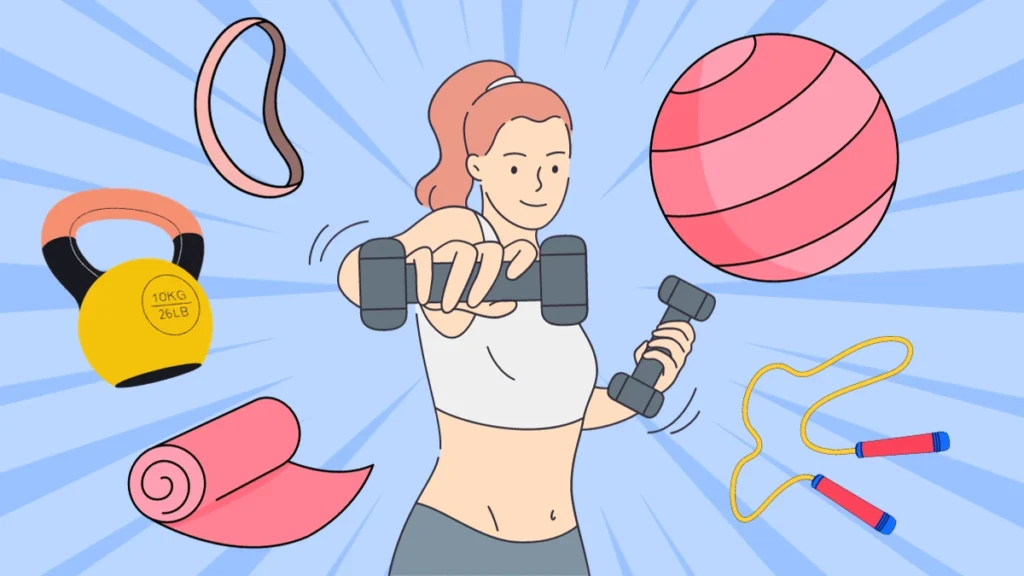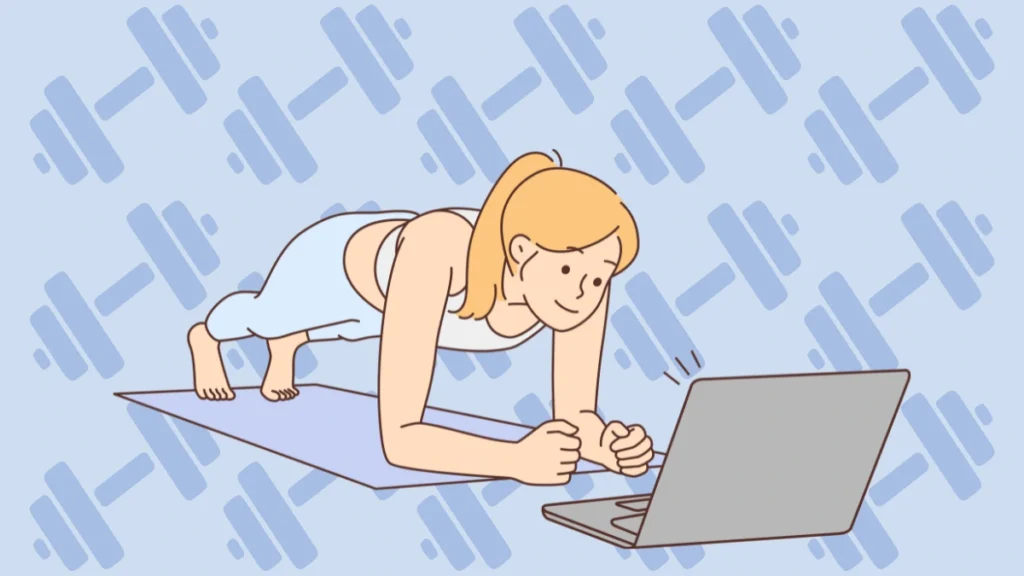Overtraining is a condition that occurs when the body is pushed beyond its limits, resulting in physical and psychological symptoms. It usually occurs when individuals over-exercise without allowing enough time for recovery. Recognizing the signs and symptoms of overtraining is important to prevent potential problems and ensure optimal performance. Listening to your body allows you to take the necessary steps to address overtraining before it causes serious problems.
Physical characteristics:

A. Fatigue and decreased productivity:
1. Persistent fatigue:
One of the most common symptoms of overtraining is persistent fatigue that doesn’t go away even after plenty of rest. Feeling tired daily could be a sign that you are overtraining.
2. Decreased Strength and Endurance:
Overtraining puts more stress on your muscles and central nervous system, reducing your strength and endurance You may find that weights you used to lift effortlessly the moment feels extra heavy, or you’re struggling to maintain a healthy pace during a cardio workout.
3. When your body doesn’t recover properly:
When you overtrain, it struggles to recover from workouts. You might notice that it takes longer for your muscles to recover from even the easy exercise. This lower level of comfort can decrease overall performance and negatively affect your fitness goals.
B. Recurrent injuries and chronic pain after overtraining:
1. Common muscle or joint pain:
Overtraining can lead to regular muscle and joint pain that does not go away even after rest. Tight or overworked muscles and joints are more susceptible to injury, such as sprains or strains.
2. Frequent strains, sprains, or stress fractures:
Due to the excessive stress placed on the body during overtraining, the risk of strains, sprains, and stress fractures increases. These injuries can further hinder your progress and make it difficult to engage in physical activities.
3. Delayed Injury:
In addition to an increased risk of injury, overtraining can also delay the healing of an existing injury Your body’s ability to repair damaged muscles is compromised when you are pushed goes beyond your limits at all times.
C. Sleep problems:
1. Insomnia or trouble falling asleep:
Overtraining can make it difficult to fall asleep at night. You find yourself tossing and turning, unable to find a comfortable position, and sleep deprivation.
2. Poor sleep:
Even if you can sleep, overtraining can cause you to sleep poorly. You will wake up feeling uncomfortable as if you haven’t slept all night.
3. Frequent night waking:
Overtraining can also keep you awake throughout the night. These interruptions can prevent you from reaching deep, restorative sleep, leading to more fatigue and exhaustion.
Psychological Symptoms:

A. Mood Swings and Irritability
1. Feeling easily agitated or frustrated:
Overtraining can manipulate your emotions and make you more irritated and cranky. You may find yourself getting easily frustrated over minor inconveniences or reacting more strongly to stressful situations.
2. Emotional volatility and mood swings:
Overtraining can lead to drastic mood swings, causing your emotions to fluctuate from high to low with little provocation.
3. Increased irritability and impatience:
Overtraining can cause irritability and impatience.Even the smallest of things can trigger a heightened emotional response.
B. Decreased motivation and interest:
1. Losing interest in training or exercise:
Overtraining can cause you to lose motivation and interest in a workout or exercise that you once enjoyed under dread exercise or find excuses to skip altogether to slow down.
2. Lack of interest in other hobbies or passions:
If you overtraining, you can not only lose interest in exercise, but also if you don’t have other hobbies or activities that stimulate these interests it motivates you this lack of motivation can spread to different parts of your life . . . . .
3. Difficulty staying focused and focused:
Overtraining can negatively affect your mental functions, making it difficult to concentrate focus on something and focus on the tasks at hand. You are easily distracted or unable to retain information as well as you used to.
C. Increased anxiety and depression:
1. Excessive stress and high levels of anxiety:
Overtraining can make you very stressed, and can cause you to worry too much about your performance, progress, and even the details of daily life You may always feel like yourself feel uncomfortable or uncomfortable.
2. Feeling overwhelmed or pessimistic:
Overtraining can overwhelm you with even the smallest tasks, leaving you feeling pessimistic.
3. Pervasive feelings of sadness or emptiness:
Overtraining can also leave you feeling sad and empty. You lose interest in activities that used to make you happy and you are generally ineffective.
Diseases of the immune system:

A. Chronic disease and infection:
1. Common colds, flu, or respiratory infections:
It can lower your immunity, leading to illnesses such as colds, flu, and respiratory infections. You may get sick more often than usual.
2. Prolonged recovery from illness:
Overtraining improves your body’s ability to recover from illness. Even minor infections take longer to heal, leaving a person feeling uncomfortable for a long time.
3. Weak immune system:
Overtraining can suppress your immune system, making it less effective at fighting infection. Your recovery time can become longer and there is more chance of severe symptoms when you are sick.
B. Suppressed Appetite and Weight Loss:
1. Loss of appetite or disinterest in food:
Overtraining can decrease your appetite and make it challenging to consume enough calories to fuel your body properly. You may find yourself disinterested in food or experiencing a diminished sense of hunger.
2. Unintended weight gain:
Overtraining combined with suppressed appetite can lead to unintended weight loss. This weight loss can result from muscle breakdown as your body struggles to meet its energy demands.
3. Body Composition Changes:
Overtraining is bound to result in changes in body composition, such as a decrease in muscle mass and an increase in body fat percentage. These changes can have a significant impact on your physical appearance as well as your athletic abilities.
C. Imbalanced cells:
1. Irregular or absent menstruation (in women):
Too much training can throw off a woman’s reproductive system, causing amenorrhea, a condition that leads to irregular or missed periods and can harm long-term reproductive health.
2. Decreased libido and sexual dysfunction (in both men and women):
Overtraining can reduce your libido and cause sexual dysfunction like men whose is stable. These changes in sexual function can negatively affect your life.
3. Changes in testosterone or cortisol levels:
Excessive training can disrupt the delicate harmony of hormones in your body, resulting in fluctuations in testosterone and cortisol levels. While testosterone, the crucial hormone for building muscle, may decrease, cortisol, the stress hormone, can rise.
Restlessness and insomnia:

A. Restless Legs (RLS):
1. Uncontrollable urge to move your legs at rest:
When you push yourself too hard in training, you risk developing restless leg syndrome (RLS), a condition in which you have an uncontrollable urge to move your legs even when you’re not moving. This strong desire to move can disrupt your sleep and result in sleep deprivation.
2. Creeping or numb sensation in the legs:
RLS often causes a creeping or numb sensation in the legs, making it difficult to relax or breathe. These uncomfortable feelings intensify when you try to sit up and sleep.
3. Sleep disturbances:
RLS can disrupt your sleep, causing you to wake up frequently at night. This can lead to sleep fragments and sleepless nights.
B. Chronic insomnia:
1. Difficulty falling asleep or falling asleep:
Overtraining can lead to chronic insomnia, characterized by persistent difficulty falling asleep or falling asleep This can lead to fatigue and weakness in the morning.
2. Night race mentality or overactive mind:
Overtraining can contribute to a night race mentality, where thoughts swirl incessantly in your head. This mental activity can make it nearly impossible to relax and fall asleep peacefully.
3. Daytime and fatigue:
Long naps due to overtraining can lead to excessive daytime sleepiness and fatigue.
C. Reduced energetic heart rate:
1. Prolonged heart rate increases after exercise:
Overtraining can increase your post-exercise heart rate. This may indicate increased cardiovascular pressure.
2. Slow recovery of resting heart rate:
Over time, your delayed heart rate can become more pronounced, with your heart rate taking longer to return to its resting level, when you are physically active -Even after mild exercise
3. Increased heart pressure:
A chronically elevated heart rate and slow recovery indicates increased heart pressure due to overtraining This stress can cause problems for your heart and cardiovascular system all over, increasing your risk of cardiovascular problems.
Know these 12 signs and symptoms of overtraining and proactively prevent, recognize and manage the more severe consequences of overtraining Remember to listen to your body and you have prioritized rest and relaxation as an important part of any training program. Don’t ignore the warning signs—your body knows best.

